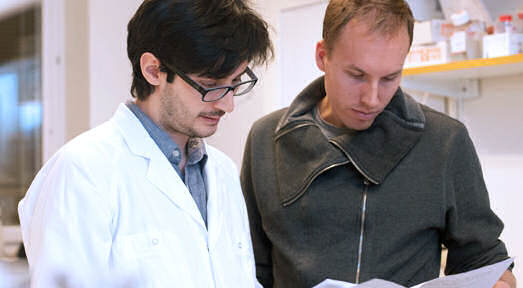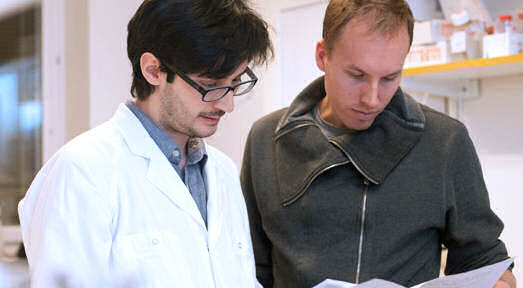Researchers at Karolinska Institutet have managed to produce the first molecular map of the genes that are active in the various cells of the human pancreas. They have also revealed differences in genetic activity between people with type 2 diabetes and healthy controls. The study, which is published in Cell Metabolism, was conducted in the AstraZeneca and Karolinska Institutet co-run Integrated Cardio Metabolic Centre, and in association with researchers from AstraZeneca.

Although knowledge of what the body looks like and how it operates at a molecular level is still limited, researchers can now examine the organs of the body in a higher resolution than before using a new technique developed by researchers at Karolinska Institutet based on single-cell transcriptomics, which makes it possible to sort out individual cells from complex tissue, study them and analyse the activity of all their genes. Using this technique, scientists can now map out the cells of an organ along with molecular patterns in organs and tissues.
“We hope that our atlas of the pancreas will serve as a catalyst for research into the metabolic diseases that affect it,” says Rickard Sandberg, professor at the Department of Cell and Molecular Biolog, who is also a researcher at the Ludwig Institute for Cancer Research and at the Cardio Metabolic Centre.
The pancreas is an important organ that regulates the body’s metabolism through hormones that it secretes into the blood from special cells. By studying thousands of individual cells, the team has made up a molecular atlas of the pancreatic cells with a focus on the hormone-producing ones in the Islets of Langerhans. An analysis of data revealed many interesting genes that were active in specific cell types, particularly the delta cells, in which they found expressed genes that give these cells a unique ability to operate as signalling centres in the pancreas, where they are able, for example, to gauge the body’s energy balance and hunger through the hormone leptin.
To conduct their study, the researchers examined the pancreas of ten deceased individuals, of whom six had been healthy and four had died of type 2 diabetes. Using single-cell transcriptomics, they were able to compare the genetic activity of all cell types while examining the presence of any disease-related changes.
“This is the first time someone has compared normal and morbid pancreatic tissue using this technique,” says Professor Sandberg.
Carina Ämmälä is a researcher at AstraZeneca and a member of the team working at the Integrated Cardio Metabolic Centre.
“Our study indicates that the different endocrinal cells of the pancreas express distinct and unique pattern genes that regulate cellular function, which changes in diabetes,” she says. “It’s now time to start looking for treatments for type 2 diabetes that restore the function of the network of cells that make up the Islets of Langerhans rather than just trying to make the beta cells work harder.”
Web Source: Karolinska Institutet.
Reference List:
Åsa Segerstolpe, Athanasia Palasantza, Pernilla Eliasson, Eva-Marie Andersson, Anne-Christine Andréasson, Xiaoyan Sun, Simone Picelli, Alan Sabirsh, Maryam Clausen, Magnus K. Bjursell, David M. Smith, Maria Kasper, Carina Ämmälä, Rickard Sandberg. Single-Cell Transcriptome Profiling of Human Pancreatic Islets in Health and Type 2 Diabetes. Cell Metabolism, 2016; DOI: 10.1016/j.cmet.2016.08.020
The post Unique molecular atlas of pancreas produced appeared first on Scienmag.





